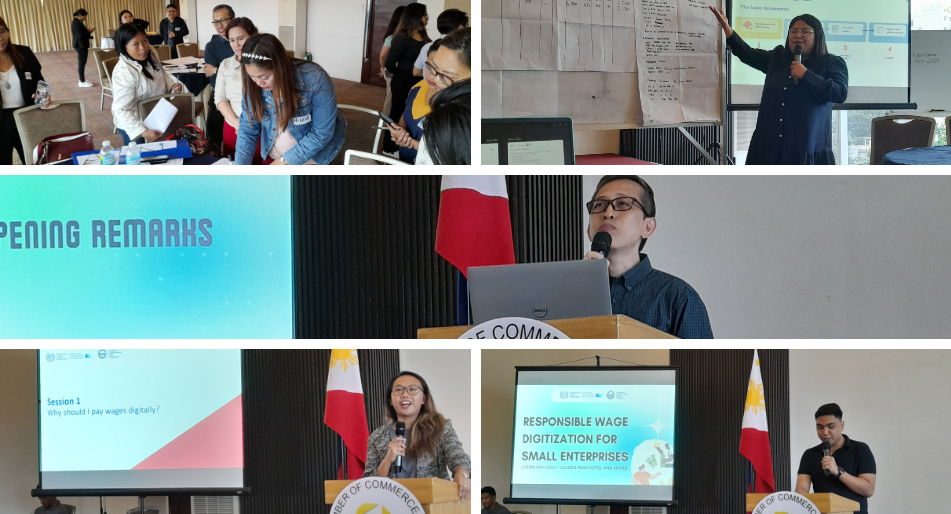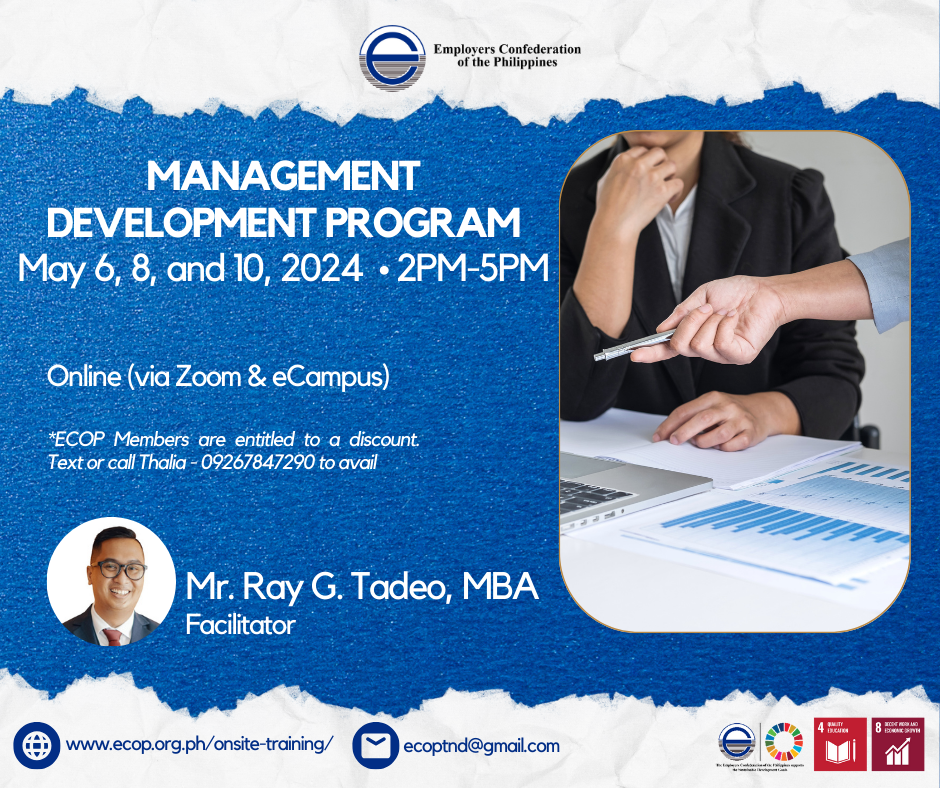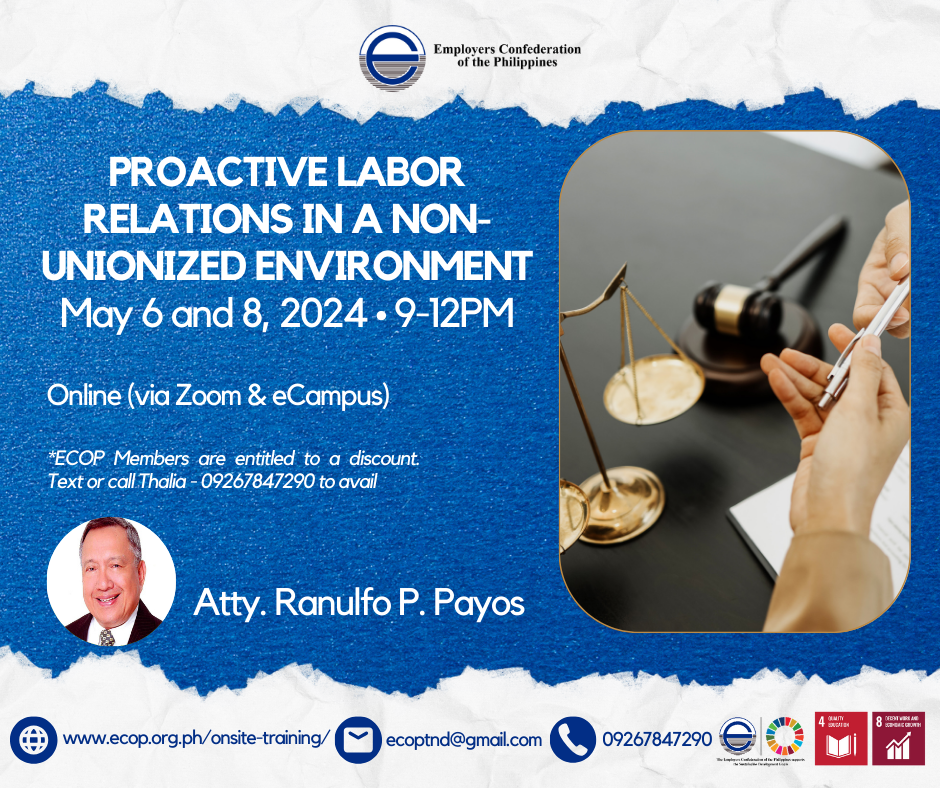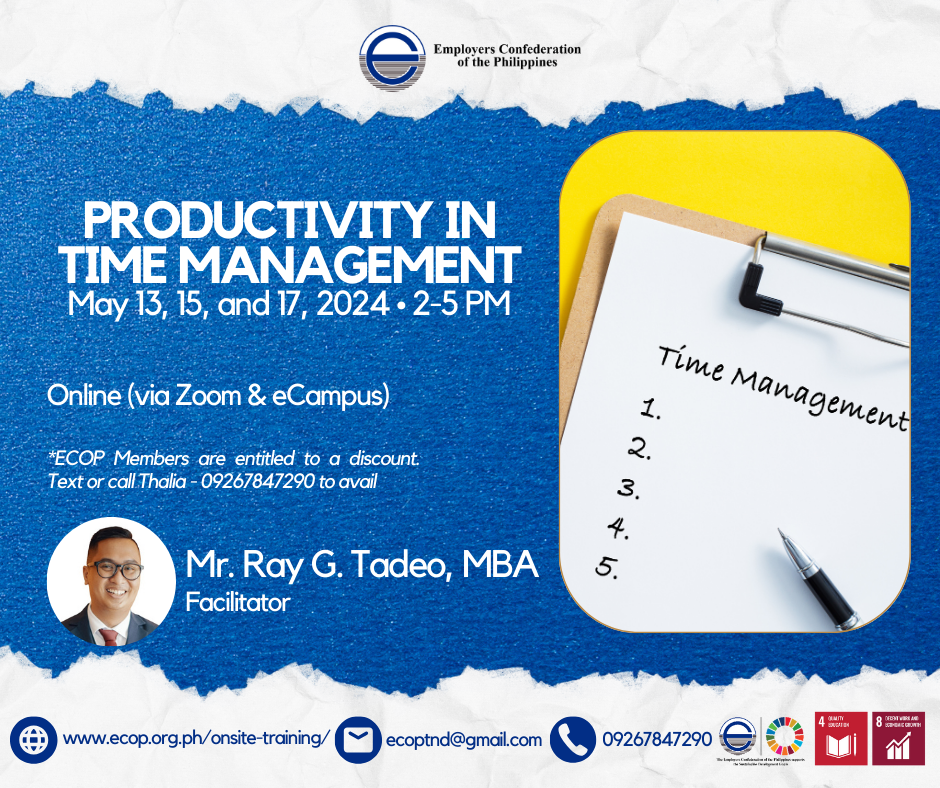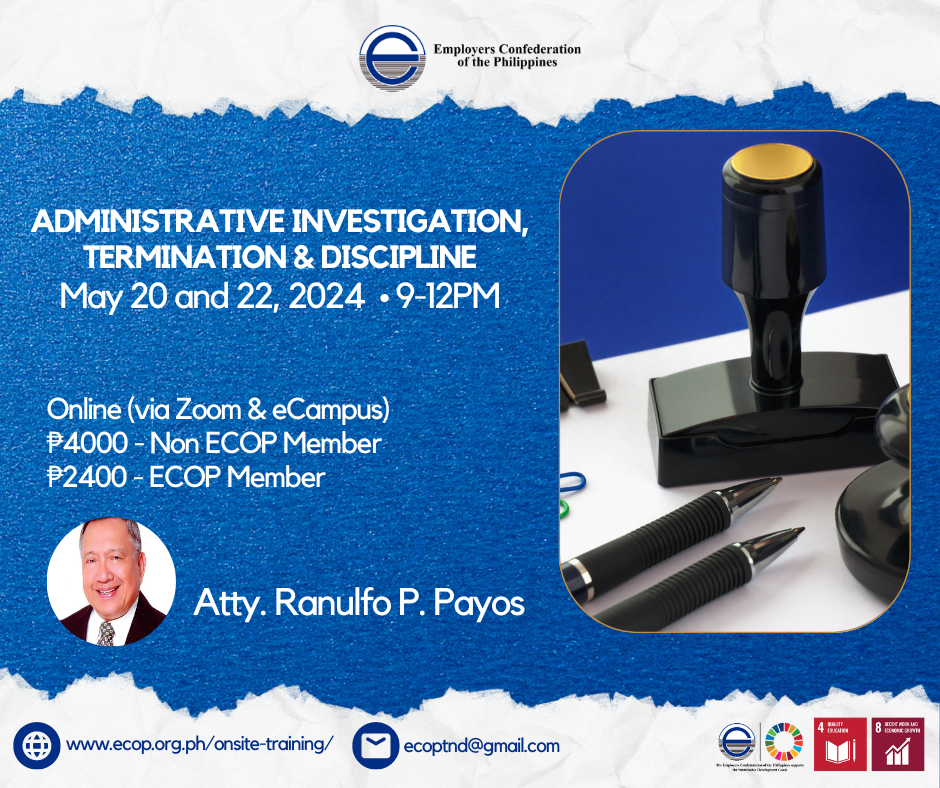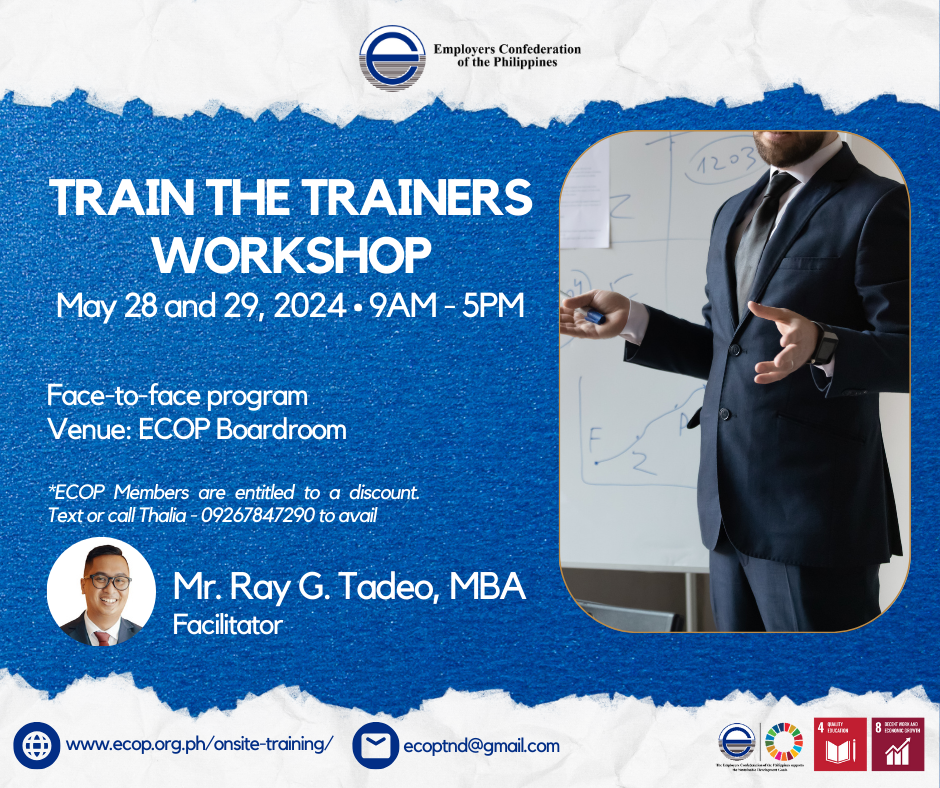ECOP, ILO, and the CCCI conduct responsible wage digitization for small enterprises in Cebu
On February 2, 2024, the Employers Confederation of the Philippines (ECOP) and International Labour Organization (ILO) partner with the Cebu Chamber of Commerce and Industry (CCCI) to roll-out the second leg of the implementation of Responsible Wage Digitization for Small Enterprises training at Golden Peak Hotel & Suites, Cebu City. This collaboration, with the help of several government agencies such as the Department of Labor and Employment (DOLE), Bangko Sentral ng Pilipinas (BSP), and the Department of Trade and Industry (DTI), aims to push forward the transition from cash wage payments to digitization and promote it to micro and small enterprises.
To start the event, ILO National Officer – Global Centre on Digital Wages for Decent Work Project Mr. Richard Umali and ECOP Project Associate for Training & Development Mr. Jerus Alem Roxas provided a quick overview of the project and the training.
The event was then formally opened by CCCI Executive Director Ms. Joy Segismar. Regional Director of Bangko Sentral ng Pilipinas – Cebu, Ms. Anna Clara M. Oville, also graced the event and gave a short speech to support the campaign of wage digitization.
The first session was led by Ms. Mary Precious Veloso, CCCI Bookkeeper and Purchasing Officer, who discussed the importance of paying wages digitally and how to prepare for it. Different case situations were presented for the participants to know what to do in various and challenging situations regarding implementation of digital wages.
Afterwards, ECOP Accounting Manager Ms. Princess Briobo tackled the technical methods on how companies can start digitizing their payroll system as well as choosing the convenient and safe financial service providers.
The final parts of the program gave focus on how to deal with workers who struggle to adapt to the planned transitions to digitization and how to support them in this undertaking. Led by Ms. Riza Majan, CCCI Finance & Admin Services Manager, the participants were tasked to do a roleplay focused on empathizing with workers who are skeptical and critical about transitioning to digital wage payments. By the end of the session, the participants also did an action planning where they were asked to think of initiatives and actions to take upon going back to their workplaces and propose the opportunity to transition from cash to digital wage payments for the benefit of both employers and employees.

